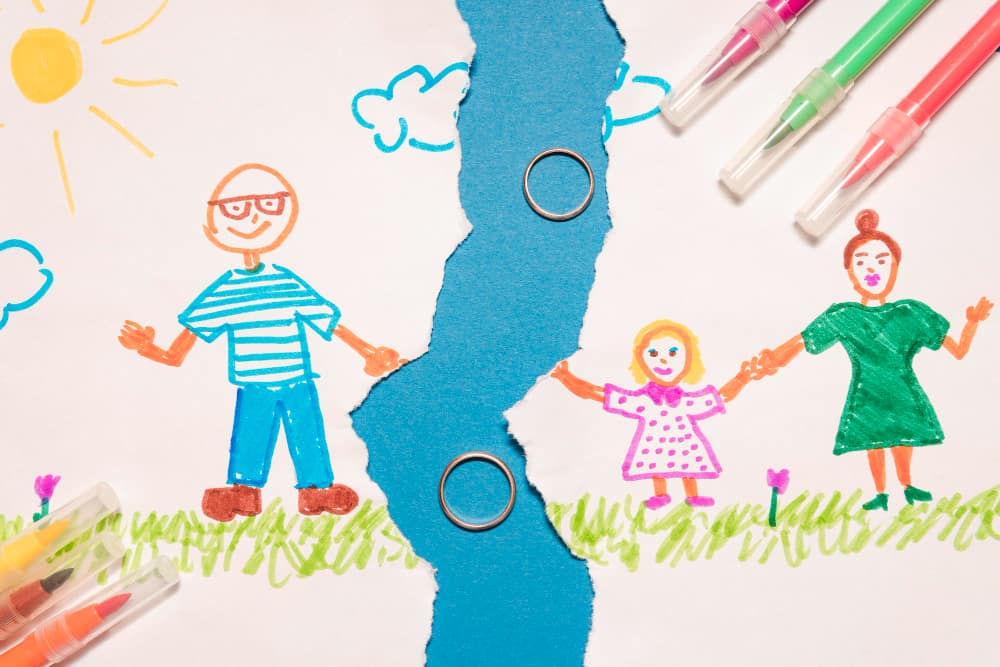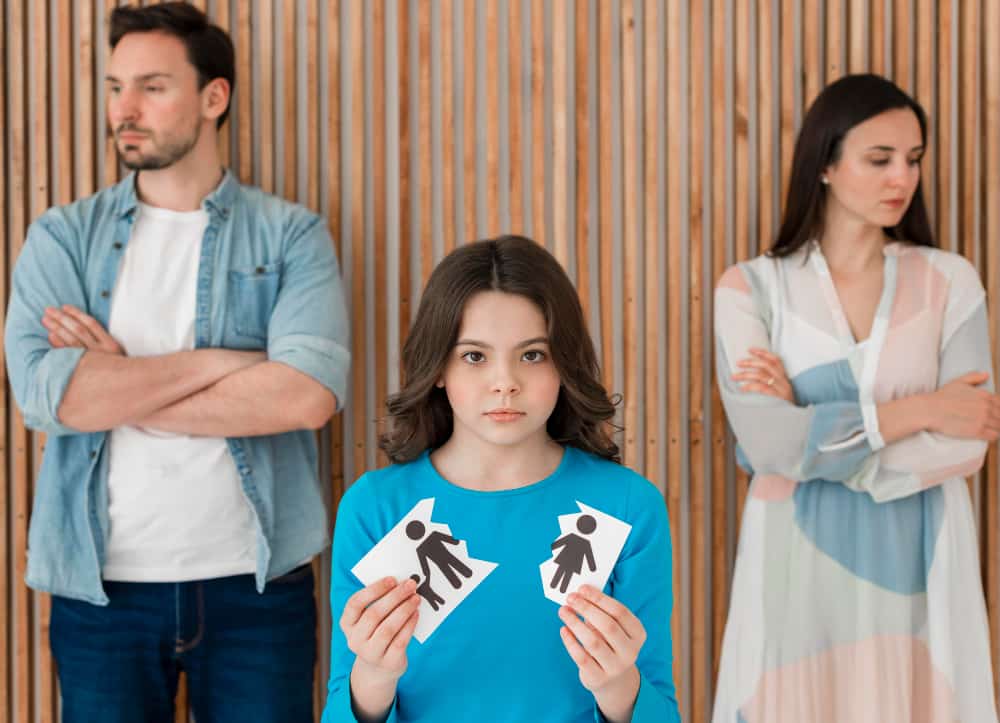- Provisions Regarding Expat Child Custody in UAE
- Child Custody case in Abu Dhabi Supreme Court
- Child Custody in UAE
- New Family Laws of 2023 for Non-Muslim Expatriates
- Status of Out of Marriage Children in UAE
- Hague Convention on Child Abduction
- Why do you need an Expat Child Custody Lawyer in UAE?
- Frequently Asked Questions (FAQs)
The distinct responsibilities of mothers and fathers under UAE custody laws are intriguing. These distinctions are most frequently found in the descriptions of guardians and custodians. The custodian, who has real physical possession of the kid and is responsible for raising, caring for, and educating the child, is concerned with the child’s day-to-day needs.
In contrast, a child’s guardian is responsible for their financial support, crucial choices about the child’s upbringing, education, and the overall administration of the child’s affairs. Usually, both parents must bring up a child. But in case of divorce, if both parties cannot agree on joint child custody in UAE, then the court will look into the matter of custody. One parent might fulfil both responsibilities.
However, the mother is often given custody, whereas the father is always regarded as the child’s guardian; nonetheless, everything depends on the child’s best interests. Therefore, feel free to contact our lawyers if you are looking for assistance to get your hands on expat child custody in UAE. Our lawyers will practically assist you and guide you about the provisions of family law.
Provisions Regarding Expat Child Custody in UAE

According to UAE law, only the child’s biological mother can request physical custody of the child. The father will be given guardianship and financial custody. Child custody in UAE is given to a mother until a certain age, and the kids may go to the father if he claims to. The court will always act in the kid’s best interest if there is a disagreement about who will have complete custody of the child.
Regardless of the child’s gender, a parent who lacks a job or a car is unlikely to prevail in a custody battle due to her inability to provide for the kid’s needs. In such circumstances, a woman may request spousal support in addition to child support. The extensive rules of the UAE try to cover as many scenarios as possible, despite the messy nature of divorce and custody disputes.
It is crucial in their practical application that the kid comes first when deciding who gets child custody in UAE. For instance, according to Article 156 of Federal Law No. 28 of 2005 (UAE Personal Status Law), custody of a kid shall belong to the mother until the child reaches the age of 11 for a boy and 13 for a female. Chapter II of the same law is about fostering, and the following sections are related to it:
- Federal Law No. 28 of the year 2005, Article 142 (UAE Personal Status Law);
- Federal Law No. 28 of the year 2005, Article 143 (UAE Personal Status Law);
- Federal Law No. 28 of the year 2005, Article 144 (UAE Personal Status Law);
- Federal Law No. 28 of the year 2005, Article 145 (UAE Personal Status Law);
- Federal Law No. 28 of 2005, Article 148 (UAE Personal Status Law).
If you are looking for any legal help under the law mentioned above, you are welcome to get in touch with our lawyers. Our expert team of lawyers in civil court has got you covered. If you meet the requirements, like; not being involved in any criminal case, being stable financially, and others, you have a high chance of winning child custody in UAE.
However, it is complicated to get expat child custody in UAE because the orders of English courts are not readily accepted here. Therefore, local courts always take the best decision in the case of expat child custody in the UAE. You can find below an example of child custody in the Abu Dhabi Supreme Court.
Child Custody case in Abu Dhabi Supreme Court
This case is related to legislation stipulating that this situation may alter if the court decides that another option is better for the kid. The Supreme Court of Abu Dhabi recently heard a custody dispute. In this instance, in line with the aforementioned Article 156, the kid, a young girl 13 years old who resided with her mother, the caretaker, was to be restored to the guardian, her father.
However, after several months of trials, hearings, and appeals, the Abu Dhabi Supreme Court rejected the father’s request for custody. Even though it is against Article 156, the court determined that the minor girl’s best interests would be served by staying with her mother until she married.
The purpose of awarding custody to the parent who best meets the needs of the child’s best interests is evidently the same legally and practically. If you are facing divorce proceedings, and you know that in case of divorce, there will be an issue of child custody in UAE. You do not need to worry. Get in touch with our lawyers, who can offer you legal support through the dissolution of civil marriage.
Child Custody in UAE

To protect children’s rights, the UAE proposed Federal Law No. 3 of 2016 regarding minors’ rights, also known as Wadeema’s Law. Children are subject to the law until they reach the age of majority. Article 39 of Wadeema’s Law states that the only factors determining custody issues are the child’s bodily and psychological needs. In addition, the law specifies the circumstances under which a mother is required to look out for the wellbeing of her ward.
According to article 144 of the Personal Status Legislation, the custodian must share the same faith as the kid in addition to the requirements stated in article 143. If this requirement is not met with proper adherence to article 145, the mother may lose custody of the child. The UAE Personal Status Legislation, article 156 of the federal law no. 28 of the year 2005 states that, despite the complexity of the custody and separation issues, the mother should have primary custody of the child up to the age of 13 for girls and 11 for boys.
Sharia law prioritizes the best interests of the kid in custody disputes so that they can develop to their full potential despite the stress of being separated from their parents. If you are seeking help for expat child custody in UAE, you are welcome to consult with our lawyers. They can offer you comprehensive guidance in this matter.
Child Relocation
As provided under the UAE Personal Status Law, it is impossible to relocate the child out of the UAE without the written consent of both parents. If the custodian (being the mother) wants to relocate the child out of the UAE, the guardian (father) would need to approve it. Even if it is a short visit, it would require the express permission of the guardian. If the guardian refuses to consent, the custodian has the right to raise a request to the family courts, which will decide on the request. However, the Dubai cassation courts have held that the freedom to travel is a constitutional right of every person in the UAE. Therefore, this right is not restricted unless a valid reason is provided.
Practically, the courts issue approvals for short visits even if the husband has not agreed, provided some guarantees, in the form of a passport of a guarantor, are submitted to the court. The guarantees to be provided are based on the discretion of the courts.
Child Abduction
Child Abductions are common occurrences in family disputes, where the abduction is either out of the UAE or into the UAE. If the parents are proven to be UAE residents, and one parent ends up abducting the child out of UAE, then it is possible for the resident parent to first apply for a custody claim before the UAE courts. Once the custody order has been obtained, it is then possible for them to file a criminal case for child abduction before the UAE courts, followed by the filing of a request to Interpol for extradition.
However, if the child has been abducted from another country into the UAE, several considerations must be considered for the process forward. One option is to file an urgent application before the UAE courts to help deliver the child back to the parent. It must be noted that UAE is not a part of the 1980 Hague Convention on the Civil Aspects of International Child Abduction. Therefore, the country has its laws related to child abduction matters.
In case the wife already has the custody of the child through a court order of a foreign country, she can file a criminal case before the UAE courts, requesting the courts to recognize the foreign court order giving her custody. The UAE can enforce a foreign judgment, provided that it is not against the public policy of the UAE.
New Family Laws of 2023 for Non-Muslim Expatriates
The new family laws of the UAE, also known as the ‘Federal Personal Status Laws’ for non-Muslims, came into force in February 2023. These laws were enacted to strengthen the country’s position as a destination for tolerance, demographic diversity, and family stability. The new law includes matters including marriage, divorce, child custody, and inheritance. These laws apply to non-Muslim expatriates or foreigners living in the UAE.
Even though the law came into force on 1 February 2023, the reforms were already approved by the late President His Highness Sheikh Khalifa bin Zayed Al Nahyan on 27 November 2021, and important amendments were made to over 40 different laws of the UAE.
The new reforms originate from Abu Dhabi’s Civil Family Court System, which has allowed Non-Muslim couples to marry or divorce without adhering to the Sharia Laws. Therefore, the process has become similar to the wedding registry offices in the UK and Europe.
The main provisions of the new law related to divorce and custody
It is possible to initiate divorce proceedings by mutual consent or even by a single spouse alone. In addition, articles 6,7 and 8 of the Abu Dhabi laws have elaborated on the aspect of “no-fault divorces”, within which the spouses can seek divorce without proving the fault or harm done by the other partner in the marriage. Further, the earlier requirement for mediation and family counselling has been done away with, and divorce can now be granted promptly and efficiently in the first hearing.
Following the divorce, joint child custody is provided to both parents unless either of them objects to the same. Therefore, joint custody is the default norm until the child has attained the age of majority or 18, after which they are free to decide for themselves. This differs from the earlier rule of mandatorily providing custody to the mother up to 13 years of age for the daughter and 11 years for the son. The father could only claim custody once his children were above the stipulated age.
The said procedures of the court will be in Arabic and English to facilitate the understanding of legal proceedings by foreigners to strengthen the transparency of the judicial system.
Status of Out of Marriage Children in UAE
The new laws that went into effect in January 2022 gave many unmarried expatriate couples in the UAE optimism and comfort that any kid born by them could be recognized in the UAE. Consensual relationships outside of marriage are essentially decriminalized under the new law under the condition that any children born as a consequence of the connection be recognized and would get the proper care.
However, Article 1 of Resolution No. 3 of 2021 states that either parent who resides in the UAE may apply to the UAE Courts for the child’s birth certificate without affecting the declaration of paternity. The process for acquiring the child’s birth certificate is described in further detail in Article 2 of the same resolution. It is no longer necessary to present a marriage certificate to register a birth, as it once was.
As a result, even if the parties do not wish to wed, they can still proceed with the parenting after providing declarations that they are the parents and that they will be able to provide all necessary documents. If you are interested to learn more about the status of a child born without wedlock in UAE, you are welcome to interact with our lawyers.
Hague Convention on Child Abduction
A multilateral treaty called the Convention of 25 October 1980 on the Civil Aspects of International Child Abduction (HCCH 1980 Child Abduction Convention) aims to safeguard children from the negative effects of unjustified removal and retention across international borders by outlining a process for securing their prompt return and guaranteeing the protection of access rights.
The “Child Abduction Section” offers details on how the Convention functions, as well as the Hague Conference’s efforts to monitor its application and foster global cooperation in the field of abduction. UAE has not ratified the 1980 Hague Convention on the Civil Aspects of International Child Abduction. The Hague Convention aims to repatriate children kidnapped or kept by a parent abroad to their country of habitual residence so that the local courts can make decisions on residency and contact.
For instance, there is no established international framework for sending kids back to the UK from the UAE. As a result, cases of parental child abduction from the UK to the UAE are sometimes challenging to resolve. The UAE government or the kidnapping parent cannot be made to return a child to the UK by the British government or the British Embassy. Our expert lawyers can assist you if you are facing any issues related to expat child custody in UAE.
Why do you need an Expat Child Custody Lawyer in UAE?

The best possible solution in a child custody lawsuit may be assured with the support of child custody lawyers in the UAE. You will have a better chance of obtaining a visitation and custody arrangement that you are happy with if you have the assistance of a knowledgeable custody attorney on your side. The decision on the kid’s physical and legal custody will be aided by a child custody lawyer.
If someone involved in a case related to child custody in UAE has to appear before a court, a qualified attorney will know just how to present the case. They are adept at navigating the convoluted rules of the courtroom while maintaining their organization and being well-prepared to provide evidence supporting their position. So, if you are facing any expat child custody case in UAE, our lawyers at LegaMart can assist you. Please get in touch with our lawyers for detailed assistance.
Frequently Asked Questions (FAQs)
Is it necessary for non-Muslims to adhere to Sharia Law for divorce and child custody?
The ‘Federal Personal Status Laws for non-Muslims came into force in February 2023. The new reforms originate from Abu Dhabi’s Civil Family Court System, which has allowed Non-Muslim couples to marry or divorce without adhering to the Sharia Laws. Therefore, the process has become similar to the wedding registry offices in the UK and Europe.
How to file a case in the UAE for child abduction?
If the parents are proven to be UAE residents, and one parent ends up abducting the child out of UAE, then it is possible for the resident parent to first apply for a custody claim before the UAE courts. Once the custody order has been obtained, it is then possible for them to file a criminal case for child abduction before the UAE courts, followed by the filing of a request to Interpol for extradition.
However, if the child has been abducted from another country into the UAE, several considerations must be considered for the process forward. One option is to file an urgent application before the UAE courts to help deliver the child back to the parent. It must be noted that UAE is not a part of the 1980 Hague Convention on the Civil Aspects of International Child Abduction. Therefore, the country has laws related to child abduction matters.




